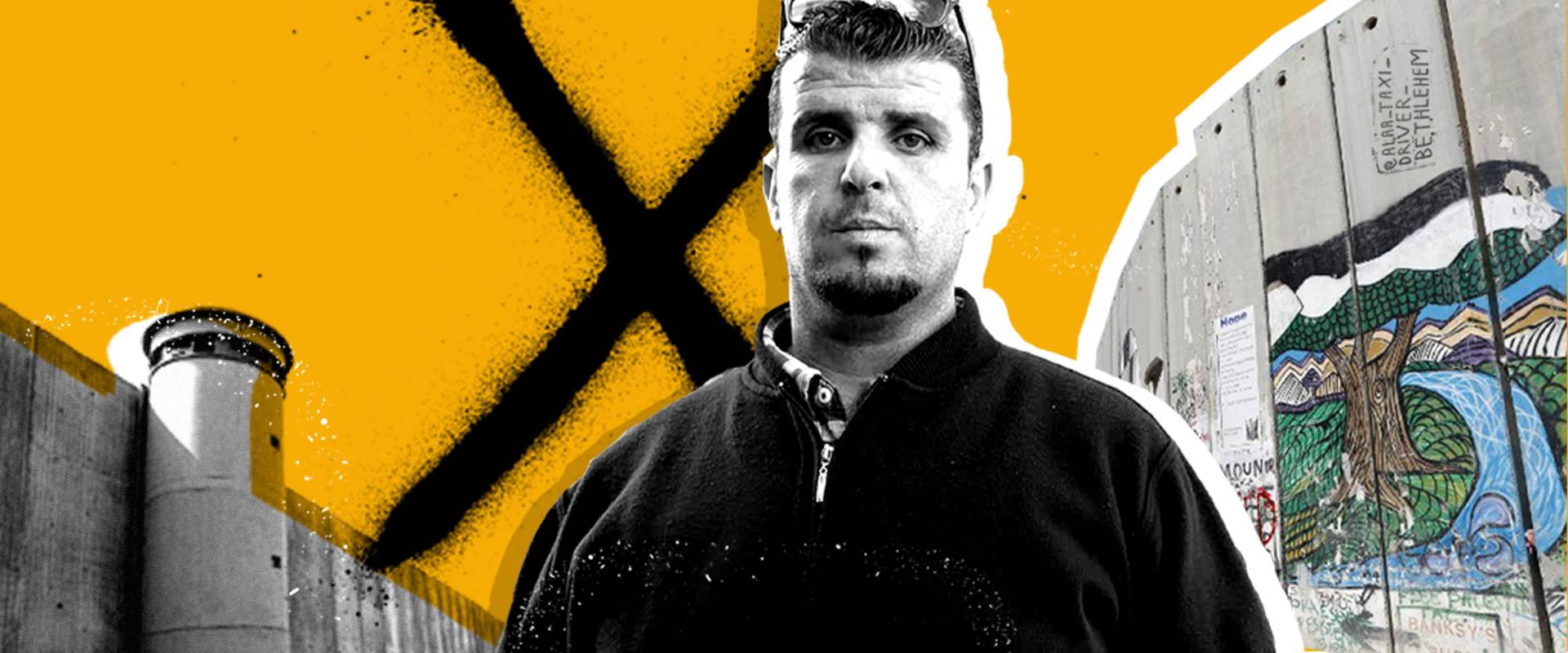
For the last seventeen years, when people say “the wall’ and “Israel” in the same sentence, they’re usually referring to something very specific: A four-hundred-and-forty-mile-long barrier – some 95% of which is a sophisticated multi-layered fence, and some of which, especially in urban areas, is an imposing concrete wall. Seen from the Israeli side, this fence/barrier/wall represents security, stability and safety. It allows us to calmly ride the bus, peacefully go out dancing, and – mainly – quietly sleep at night. Because it was, after all, born out of violence and carnage. People were getting killed often and daily. It was scary. And, as experts around the world agree, the wall has succeeded, dramatically reducing terror. But when Israelis go to bed at night, there are other people – really close by – going to bed too. And from their perspective, looking out of their window, the same wall represents something different altogether. Not safety or security, but rather, a lack of freedom.
Without getting into political polemics, in our episode today we meet some of those neighbors. Regular people, living in the shadow of a wall.
Mishy Harman talks to Danny Tirza, a jovial retired IDF colonel who, back in 2002, was given an unusual – and logistically nearly impossible – mission: To build the security fence.
For everything this fence/barrier/wall represents to people on both sides, it’s easy to forget that it is an actual physical structure. And as Joel Shupack discovered in Bethlehem, some people have found surprising ways of using it. This is the story of Alaa Asakerah, who went from being an under-worked shawarma maker to the most famous cab driver in town. All because of the wall.
Arianna Skibell takes us to Battir, a pastoral village about three kilometers southwest of Jerusalem. Over the centuries, the serene landscape has seen Jews, Romans, Mamluks, Ottomans, Brits, Jordanians and now – of course – Palestinians. But throughout it all, one feature has remained the same – the ancient agricultural terraces. Faced with the threat of a wall dividing their community, the residents of Battir joined forces with a strange group of professionals who had been hanging out in the village. Together they came up with an ingenious solution: Applying to become a UNESCO World Heritage Site.
If Alaa turned the wall in Bethlehem into his own private billboard, Yoshi Fields explores the advertising world from a different perspective. In 2009, Cellcom was one of the largest telecommunication companies in Israel, known for their emotional, heartwarming, ads. But then, one of them backfired. Big time.
The original music in Eight Days a Week was composed, arranged, and performed by the Israel Story band led by Ari Jacob and Dotan Moshonov, together with Ruth Danon, Eden Djamchid and Ronnie Wagner-Schmidt. The end song is our band’s cover to the Arabic classic Foug el-Nakhal, popularized in Israel by, among others, Dudu Tassa. Additional music by Blue Dot Sessions, Podington Bear, Broke for Free, Letter Box and Turku, all licensed under Creative Commons.
This episode was edited by Julie Subrin, Sara Ivry, Yochai Maital and Zev Levi, and was mixed by Sela Waisblum. Thanks to Revital Iyov, Rafi Schoffman, Dani Schoffman, Yotam Michael Yogev, Matti Friedman, Marom Ginsberg-Fletcher, Claire Anastas, Ahmad Abu Ahmad, Mohammed Obidallah, Joe Rashba, Natasha Westheimer, Elham Nasser ed-Din, Arie Ruttenberg, Alon Rom, Asaf Liberman, Josh Brook, Skyler Inman, Maya Enoch, Via Sabra, Congregation Kol Ha’Neshama in Seattle, Rabbi Zari Weiss, David Satran and Naomi Chazan.
It is based on Israel Story’s latest live show tour – “The Wall.” Thanks to all who made that tour possible, including Rabbi Jonah Steinberg, Lauren Cohen-Fisher, the Brachman Family, the Harvard Hillel staff, Justin Ziebell, Michael Simon, Reut Tzadok, Rachel Hillman, the Northwestern Hillel staff, Nevo Shinaar and Shaul Notkin.
 The Jerusalem Portfolio is a professionally managed investment portfolio of Israeli-focused public companies listed on the Tel Aviv, US and London stock exchanges. Learn more about how you can invest in the Israeli innovation, creativity and vision that made the desert bloom!
The Jerusalem Portfolio is a professionally managed investment portfolio of Israeli-focused public companies listed on the Tel Aviv, US and London stock exchanges. Learn more about how you can invest in the Israeli innovation, creativity and vision that made the desert bloom!
The first ten Israel Story listeners who sign up will receive a free $50 to invest. Use promo code ‘Israel Story’ when signing up.